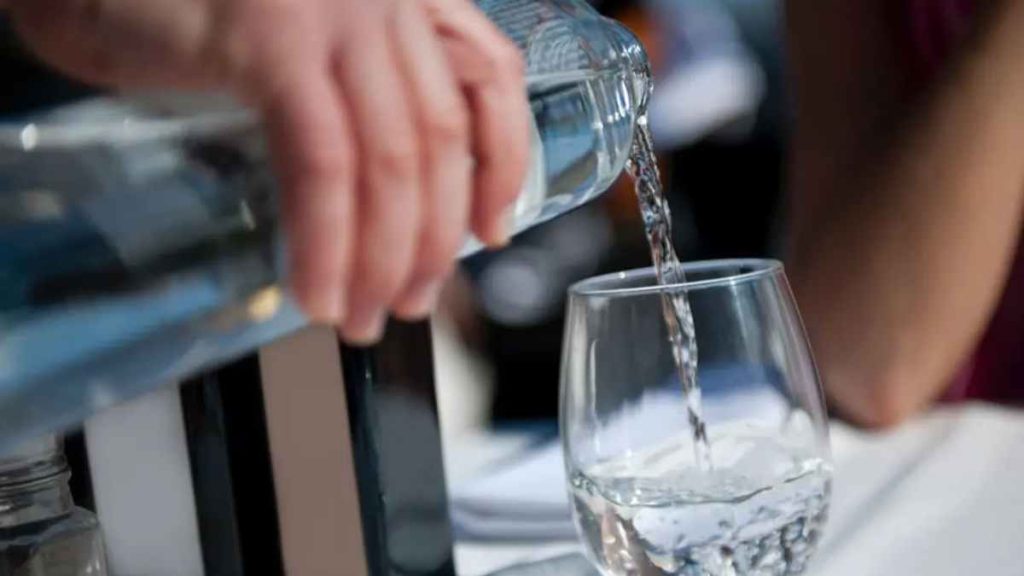Did you ever wonder about drinking distilled water? It’s simply regular water that’s undergone a unique process.
Understanding Distilled Water
Distilled water originates from boiling water, where the steam is cooled down and converted into liquid. Some believe it to be the purest form of water.
Regular water sources like springs, wells, or taps may contain trace amounts of minerals, bacteria, pesticides, and other contaminants. Distillation removes these impurities, eliminating over 99.9% of dissolved minerals.
Comparing Tap, Filtered, Purified, and Distilled Water
Tap water flows directly from your faucet, usually disinfected with chlorine, filtered for sediments, and treated with chemicals. It also contains fluoride to combat tooth decay.
Filtered water is essentially tap water processed to remove chlorine, bacteria, and some chemicals, enhancing its taste. Most bottled water undergoes some form of filtration.
Purified water is free of microbes and chemicals. Processes like reverse osmosis, ozonization, or distillation are used to purify it. The EPA mandates purified water to have less than 10 parts per million of total dissolved solids.
Distilled water is a purified water variant. Its production involves boiling water and collecting steam, effectively removing salts, minerals, and other organic materials.
Can We Drink Distilled Water?
Yes, distilled water is safe to drink. However, it may taste flat due to the absence of minerals like calcium, sodium, and magnesium, which give tap water its characteristic flavor. What remains in distilled water is just hydrogen and oxygen.
Applications of Distilled Water
Distilled water is perfect for situations requiring purity. Here are its common applications:
- Medical Uses: It’s used in hospitals to clean equipment, reducing contamination risk and infections. Kidney dialysis machines also utilize ultra-pure water to cleanse the blood.
- Laboratory Experiments: Distilled water ensures accuracy in lab tests due to its non-reactive nature.
- Cosmetic Products: In cosmetics like moisturizers, deodorants, or shampoos, distilled water is a common ingredient.
- Automobile Care: Its lack of minerals prevents corrosion of metal engine parts and battery interference.
At home, distilled water finds several uses:
- Baby Formula: Mix it with infant formula for babies with weak immunity.
- CPAP Machines: Many manufacturers recommend distilled water in the humidifier chamber of CPAP machines used for sleep apnea, helping them last longer.
- Neti Pot: Use distilled water with a Neti pot for sinus clearance.
- Ironing: Prevents scale buildup in your clothes iron.
- Hair Care: Shower water additives may dull your hair. Using distilled water for shampooing can help.
Potential Risks of Using Distilled Water
Distilled water lacks essential electrolytes and minerals, meaning you might miss out on these micronutrients if consumed exclusively.
Studies suggest low-calcium and magnesium water can cause tiredness, muscle cramps, weakness, and heart disease. Also, it might not hydrate as effectively as other types of water.
Consider adding a sea minerals supplement if you use distilled water in fish tanks. While some coffee enthusiasts prefer distilled water for a purer taste, the Specialty Coffee Association of America suggests water with a certain mineral level for the best brew.
Storing Distilled Water
Unopened bottled distilled water has a virtually unlimited shelf life when stored away from direct sunlight. Once opened, ensure it’s well sealed after use. Germs can grow even in nutrient-poor distilled water.
DIY Distilled Water
To make your own distilled water:
- Half-fill a large pot with water.
- Attach a cup to the pot’s lid so it hangs inside without touching the water.
- Boil the water for 20 minutes.
- The condensed vapor that collects in the cup is your distilled water.
Summing It Up
In conclusion, distilled water is a versatile resource with numerous applications. Proper storage is crucial to maintain its purity and prevent bacterial growth. Understanding these aspects can help you decide when and how to use distilled water effectively.




